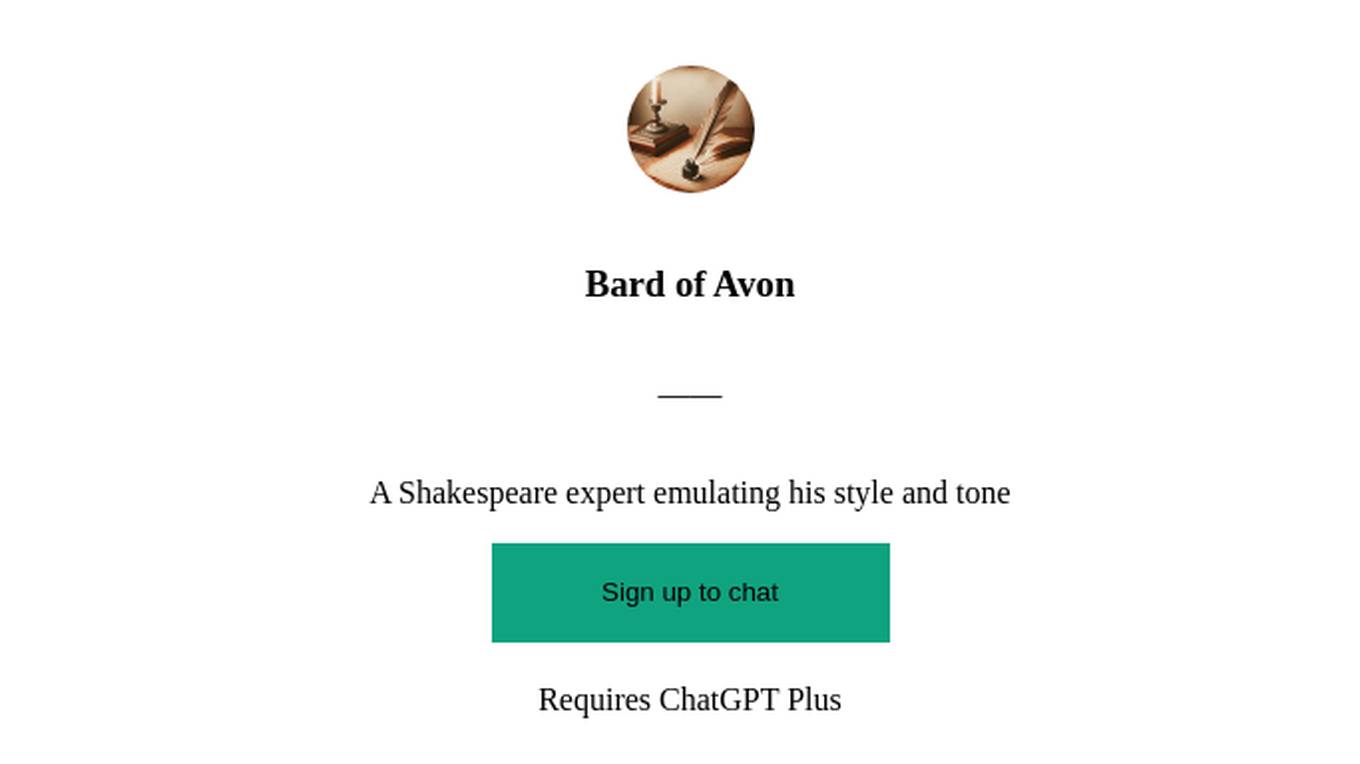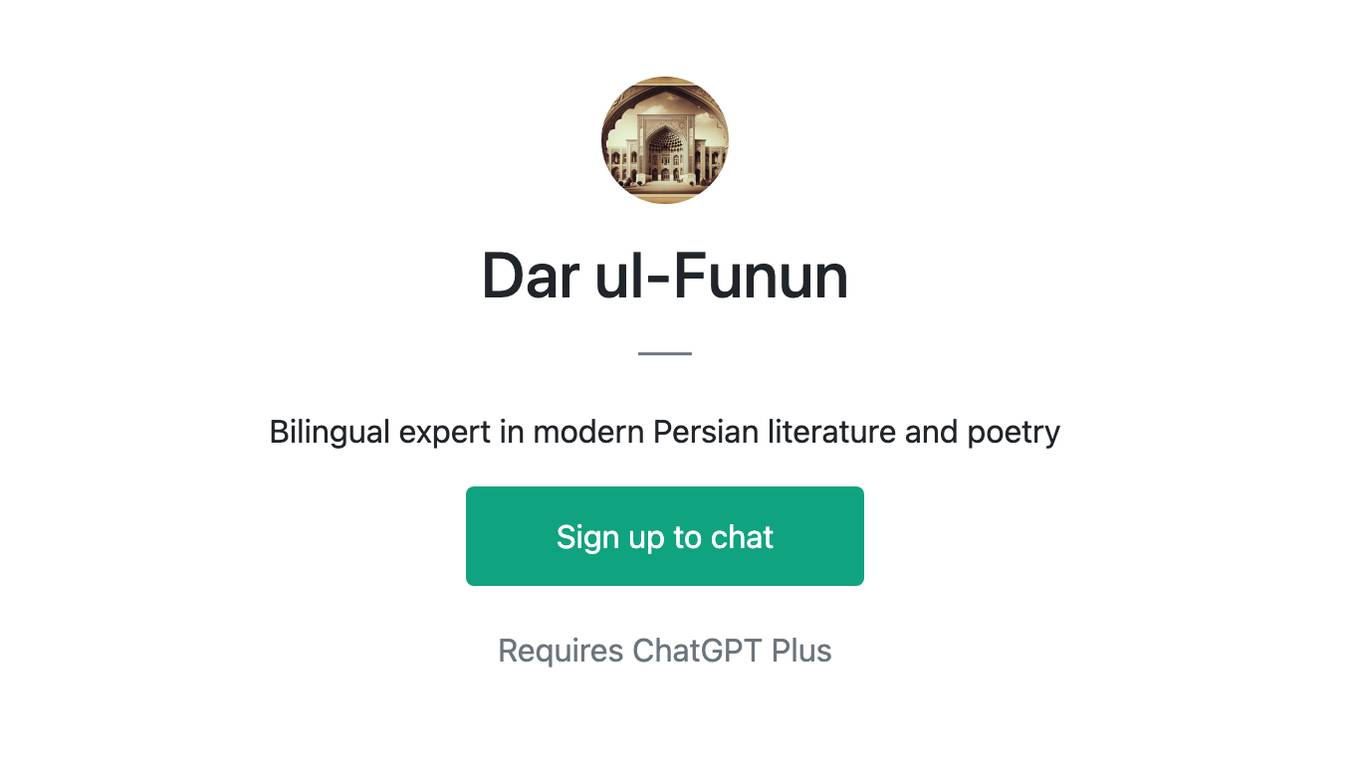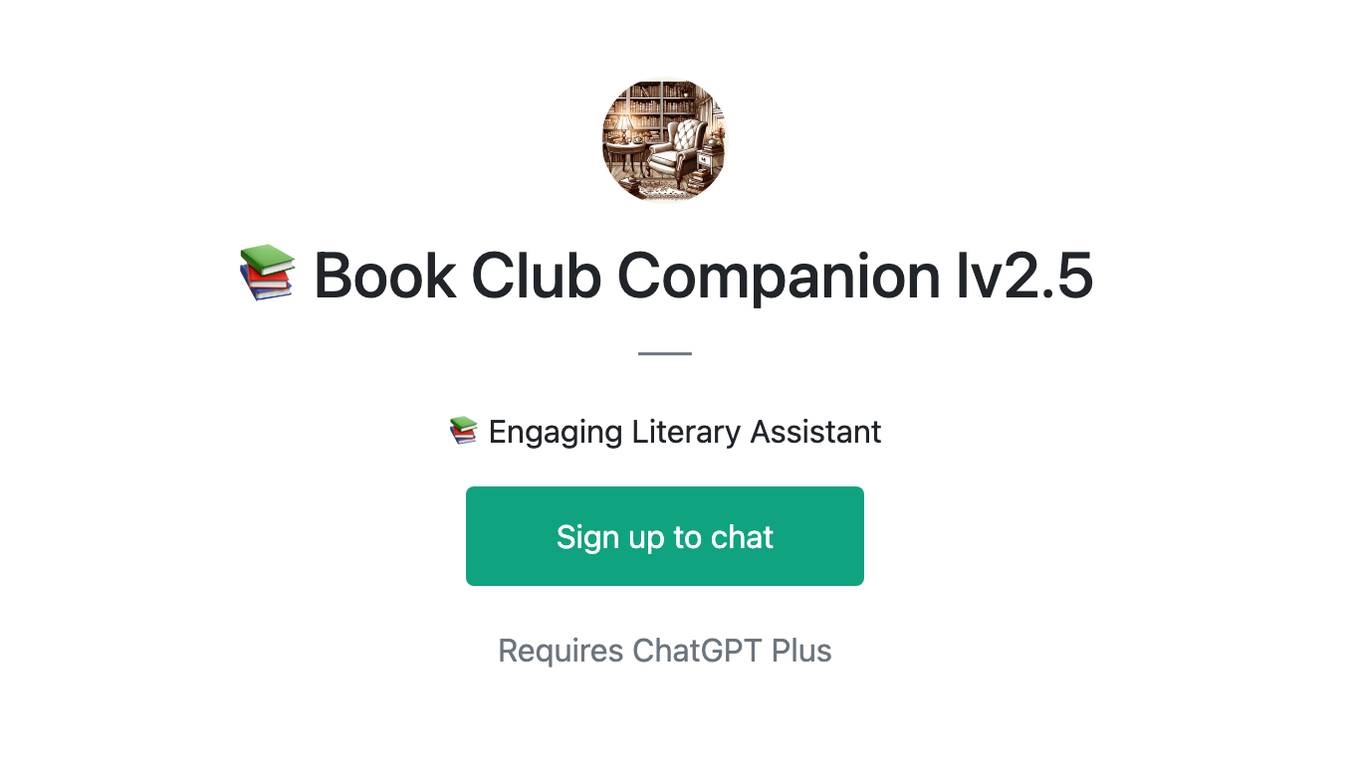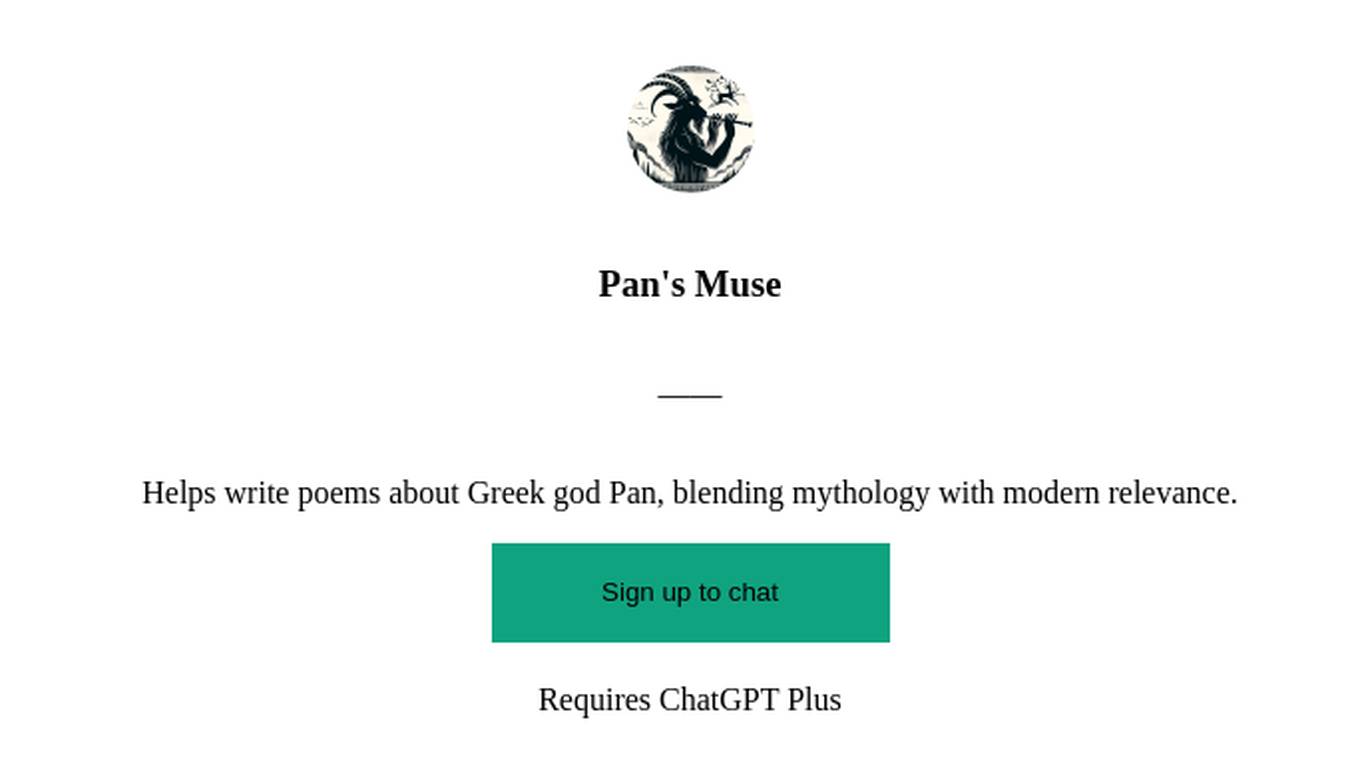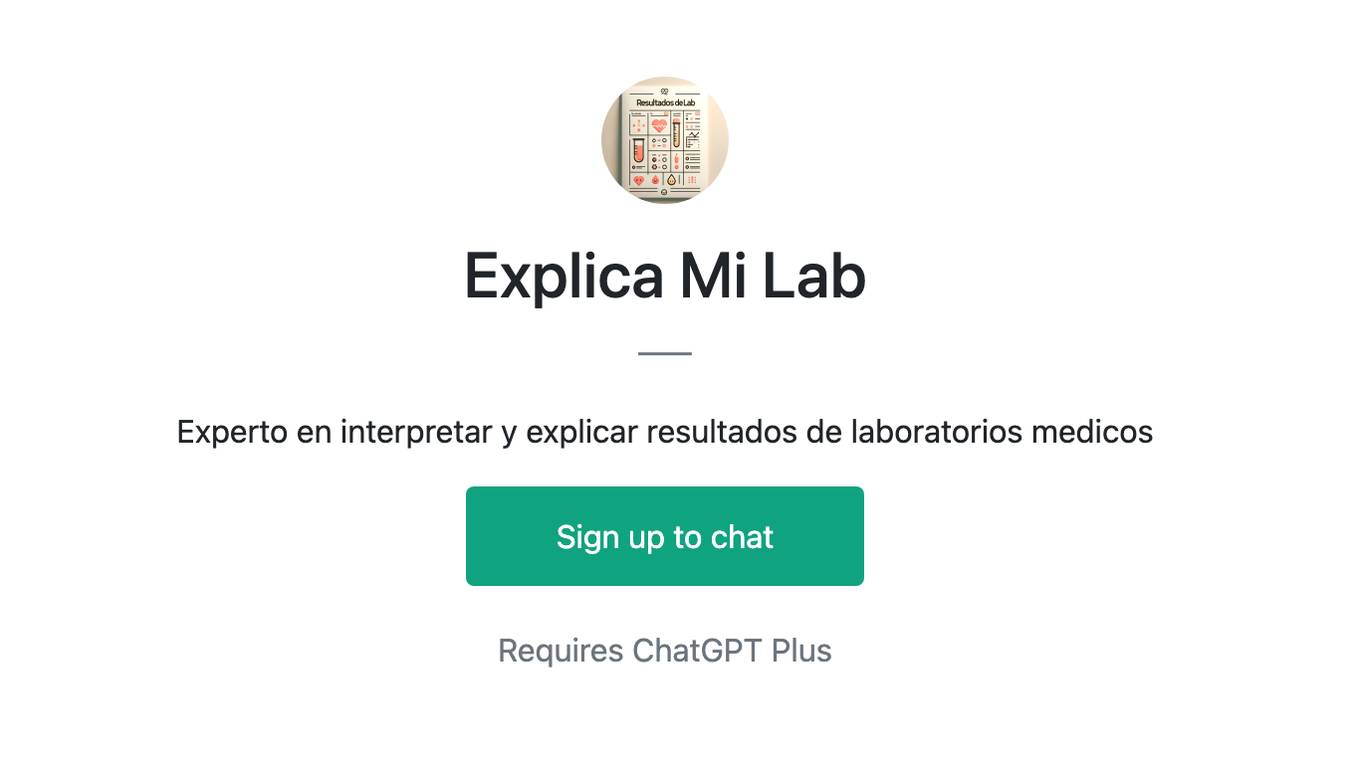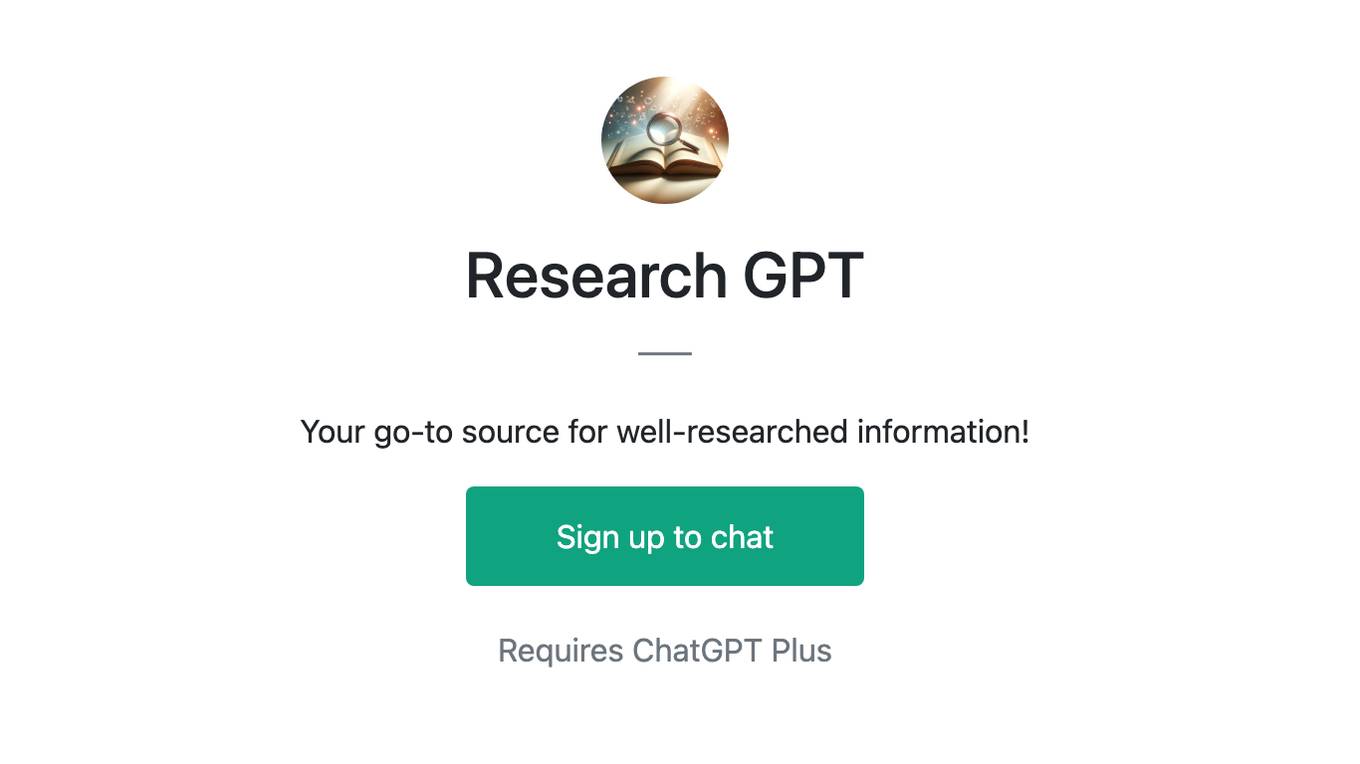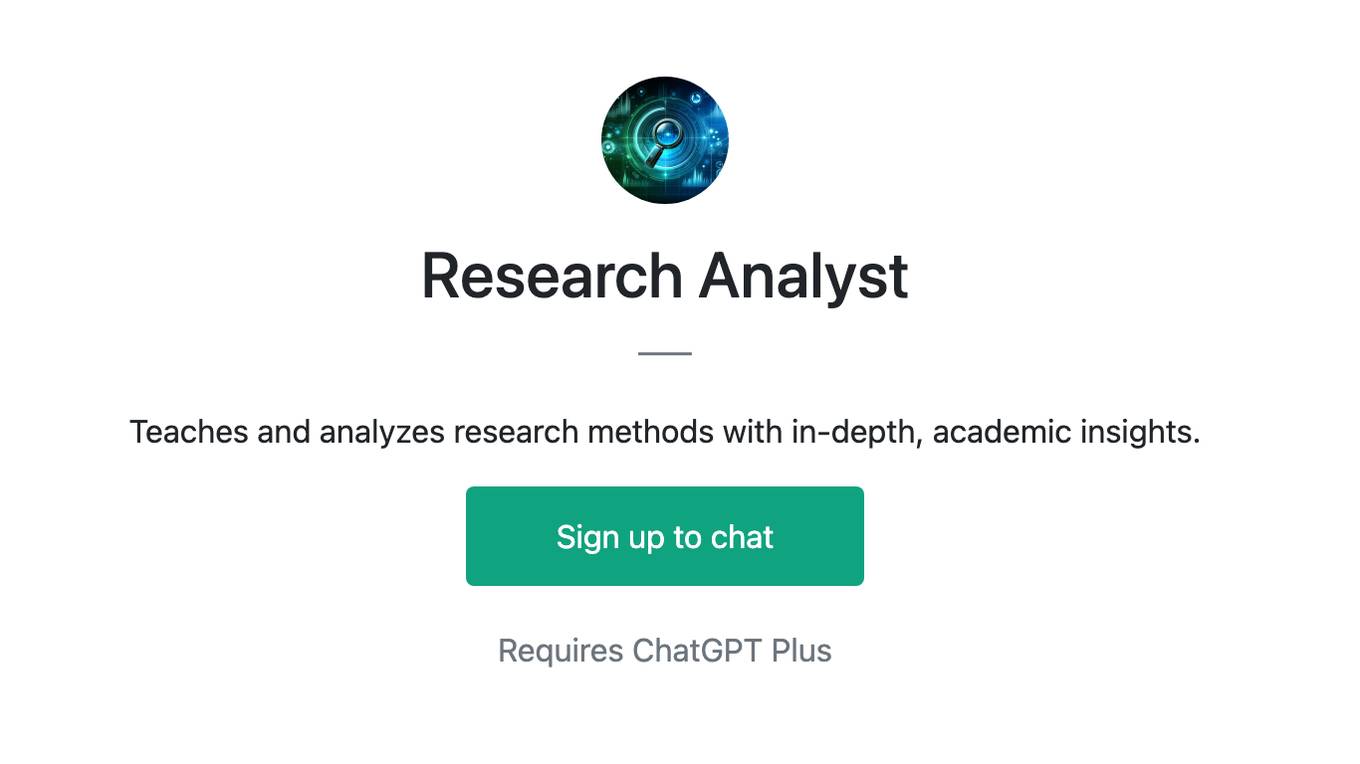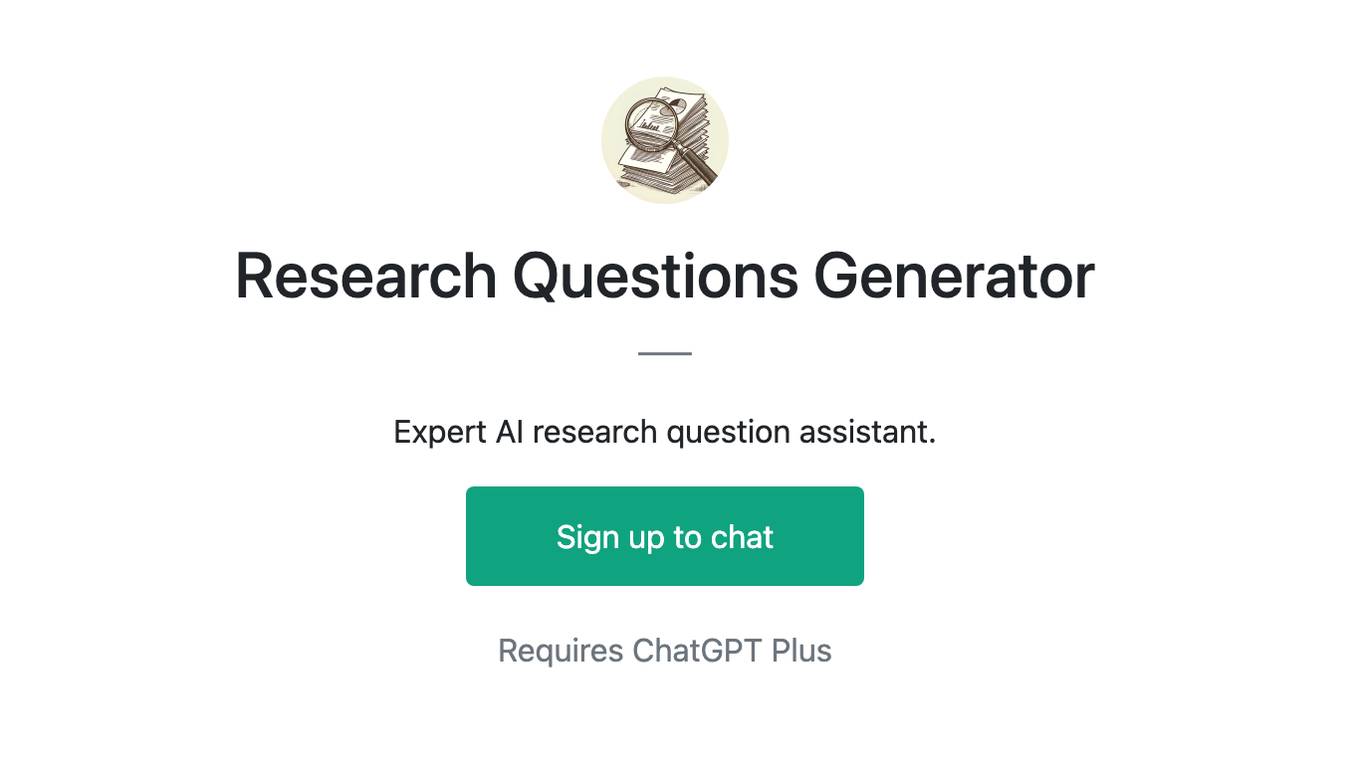Best AI tools for< Research Literary Works >
20 - AI tool Sites
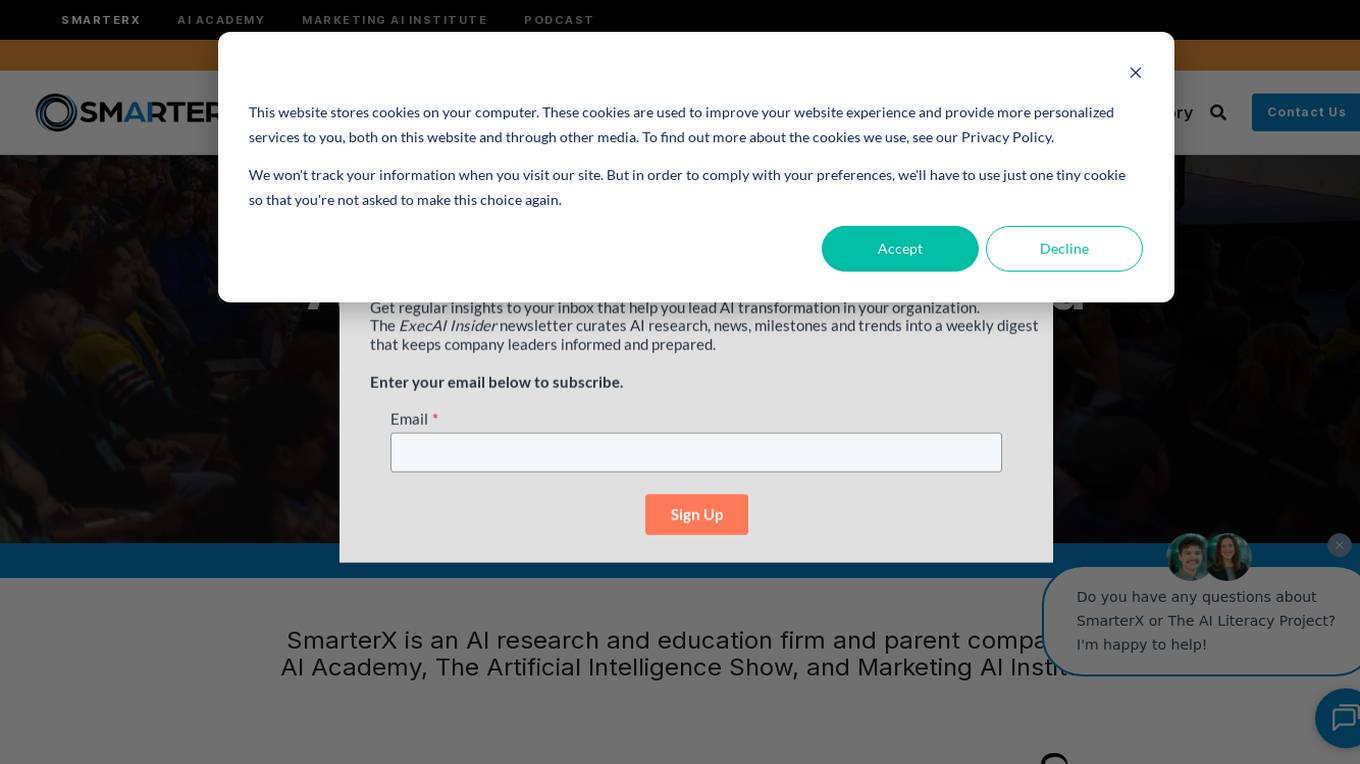
SmarterX
SmarterX is an AI research and education firm that aims to empower leaders to reimagine business models, reinvent industries, and rethink possibilities through a responsible, human-centered approach to AI. The company offers AI Academy, The Artificial Intelligence Show, and Marketing AI Institute to educate professionals and organizations on the transformative power of AI in businesses, industries, jobs, economy, educational systems, and society. SmarterX believes in accelerating AI literacy for all to build a smarter version of any business and prepare for an AI-native future.
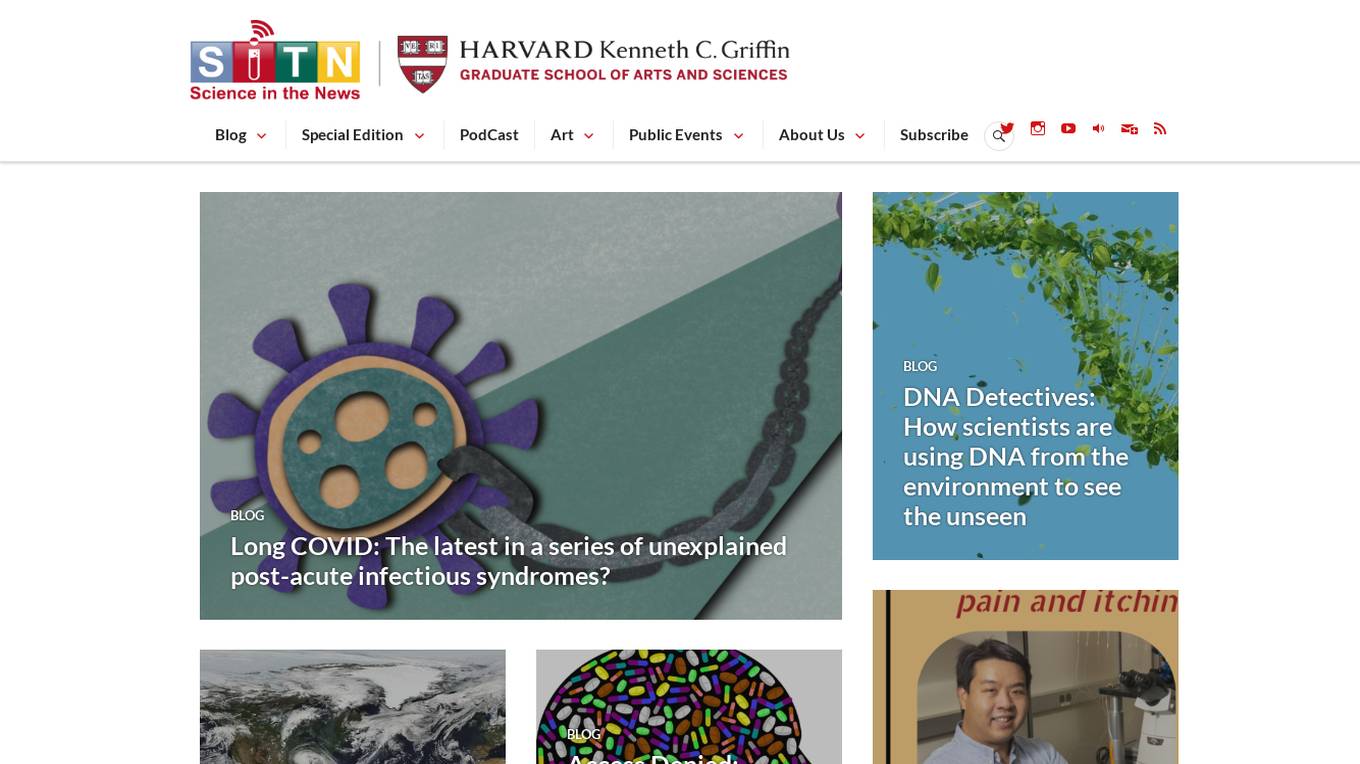
Science in the News
Science in the News is a Harvard graduate student organization with a mission to bridge the communication gap between scientists and non-scientists. It provides a platform for researchers to share their work with the wider community in an accessible and engaging way. The website features articles, podcasts, videos, and other resources on a wide range of scientific topics, including astronomy, biology, chemistry, computer science, and physics.
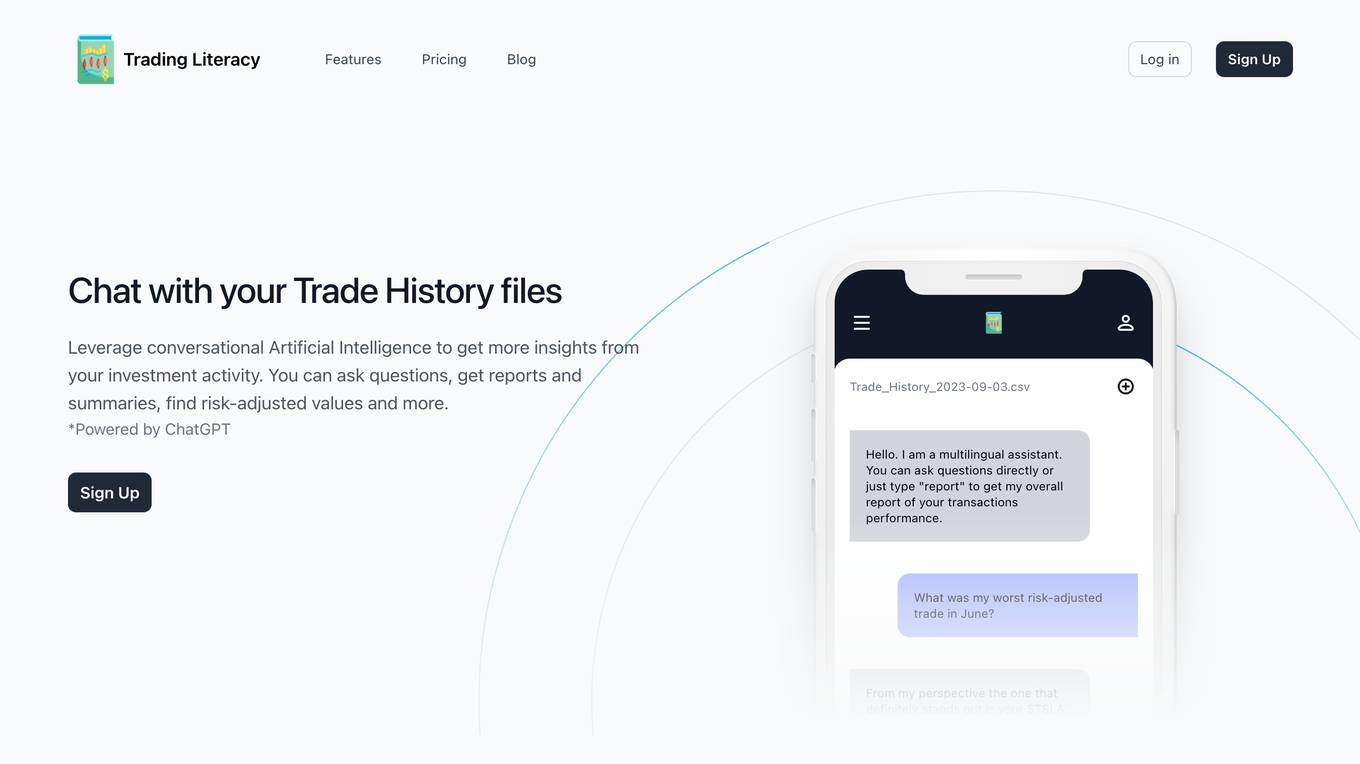
Trading Literacy
Tradingliteracy.com is a website focused on providing resources and information related to trading and investment literacy. The site aims to educate users on various aspects of trading, including strategies, market analysis, and risk management. Through articles, guides, and tools, tradingliteracy.com helps individuals enhance their understanding of financial markets and make informed investment decisions.
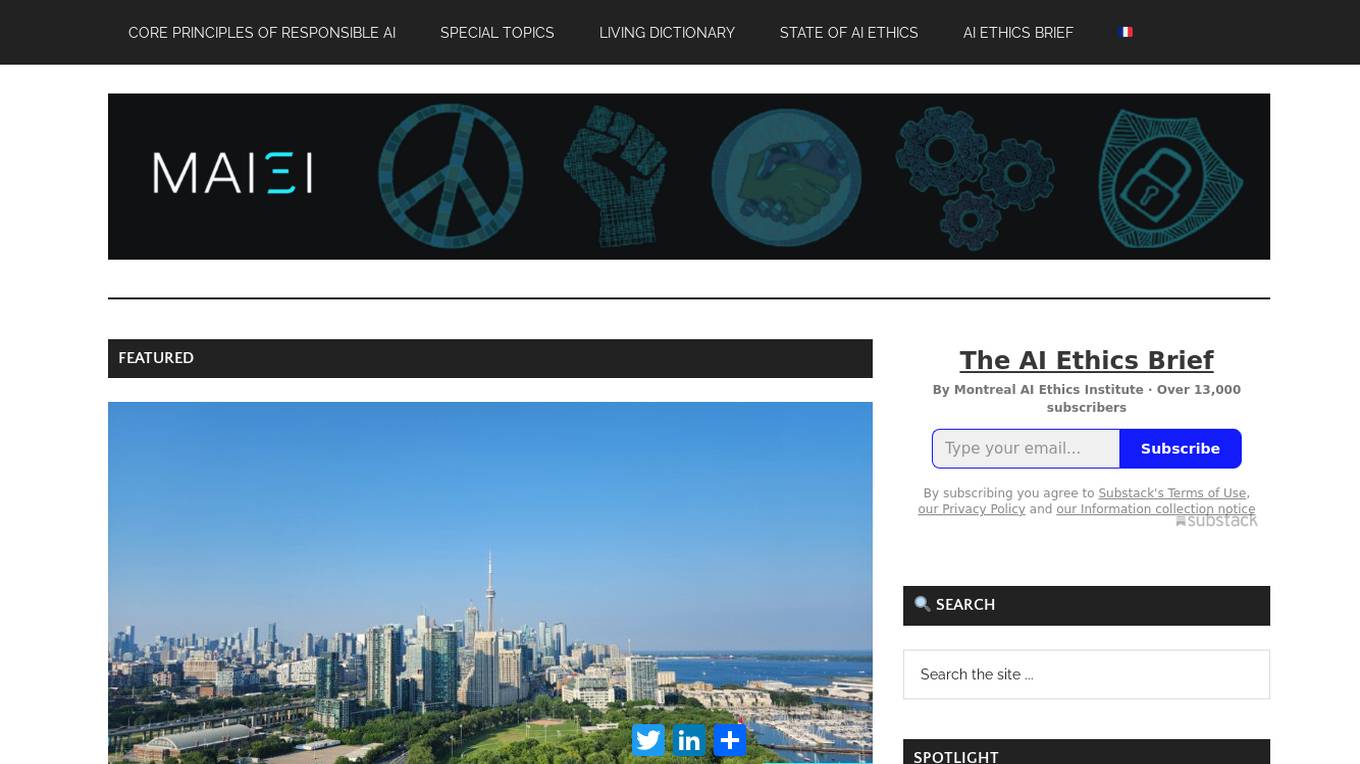
Montreal AI Ethics Institute
The Montreal AI Ethics Institute (MAIEI) is an international non-profit organization founded in 2018, dedicated to democratizing AI ethics literacy. It equips citizens concerned about artificial intelligence and its impact on society to take action through research summaries, columns, and AI applications in various fields.

Nature
Nature is a scientific journal that publishes original research, reviews, news, and commentary on a wide range of scientific disciplines. It is one of the world's most prestigious scientific journals, and its articles are widely cited in the scientific literature. Nature is published by Springer Nature, a leading global publisher of scientific, technical, and medical content.
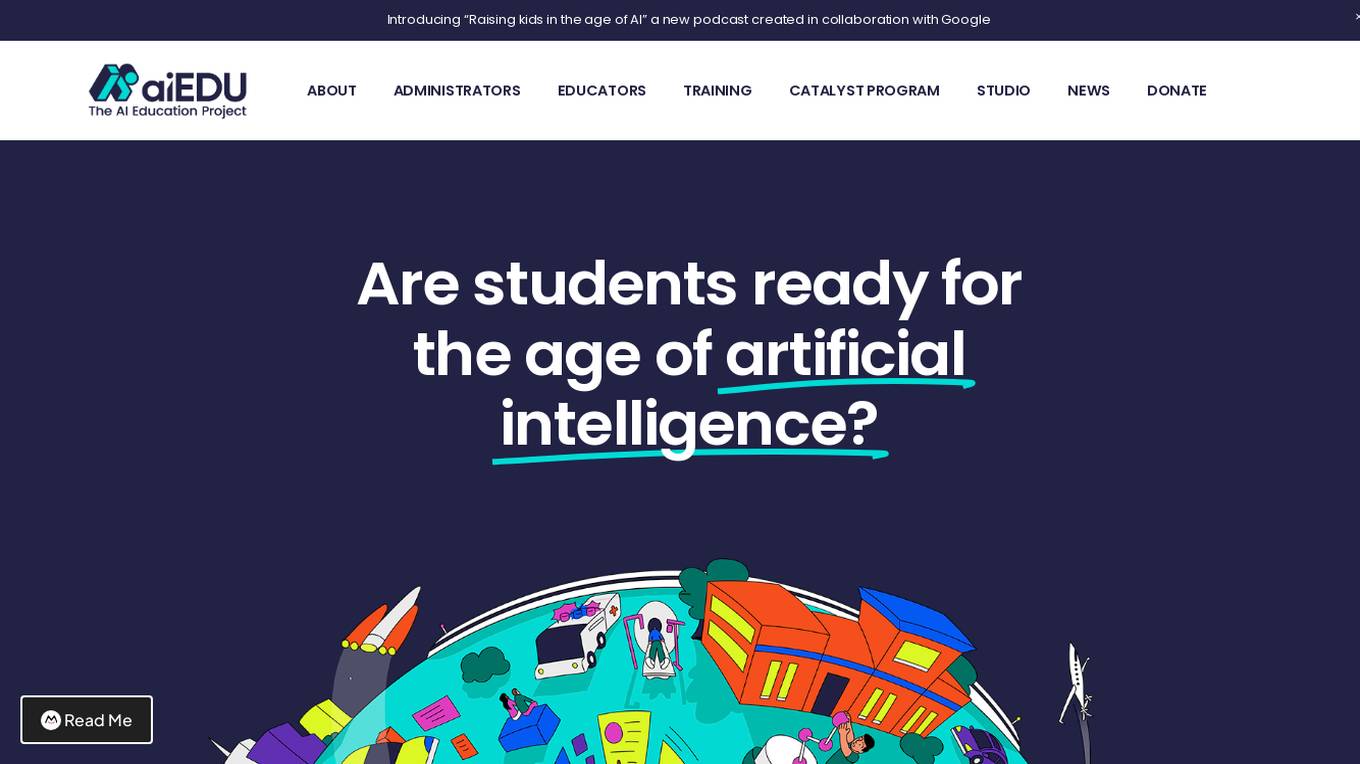
aiEDU
aiEDU is a 501(c)(3) non-profit organization dedicated to promoting AI literacy and readiness among students. The platform empowers educators and school leaders by providing research-based strategies and curriculum for various subjects. aiEDU envisions a world where education evolves to meet the demands of an AI-driven society, fostering collaboration among education partners and stakeholders.

Skeptic Reader
Skeptic Reader is a Chrome plugin that helps users detect bias and logical fallacies in real-time while browsing the internet. It uses GPT-4 technology to identify potential biases and fallacies in news articles, social media posts, and other online content. The plugin provides users with counter-arguments and suggestions for further research, helping them to make more informed decisions about the information they consume. Skeptic Reader is designed to promote critical thinking and media literacy, and it is a valuable tool for anyone who wants to navigate the online world with a more discerning eye.
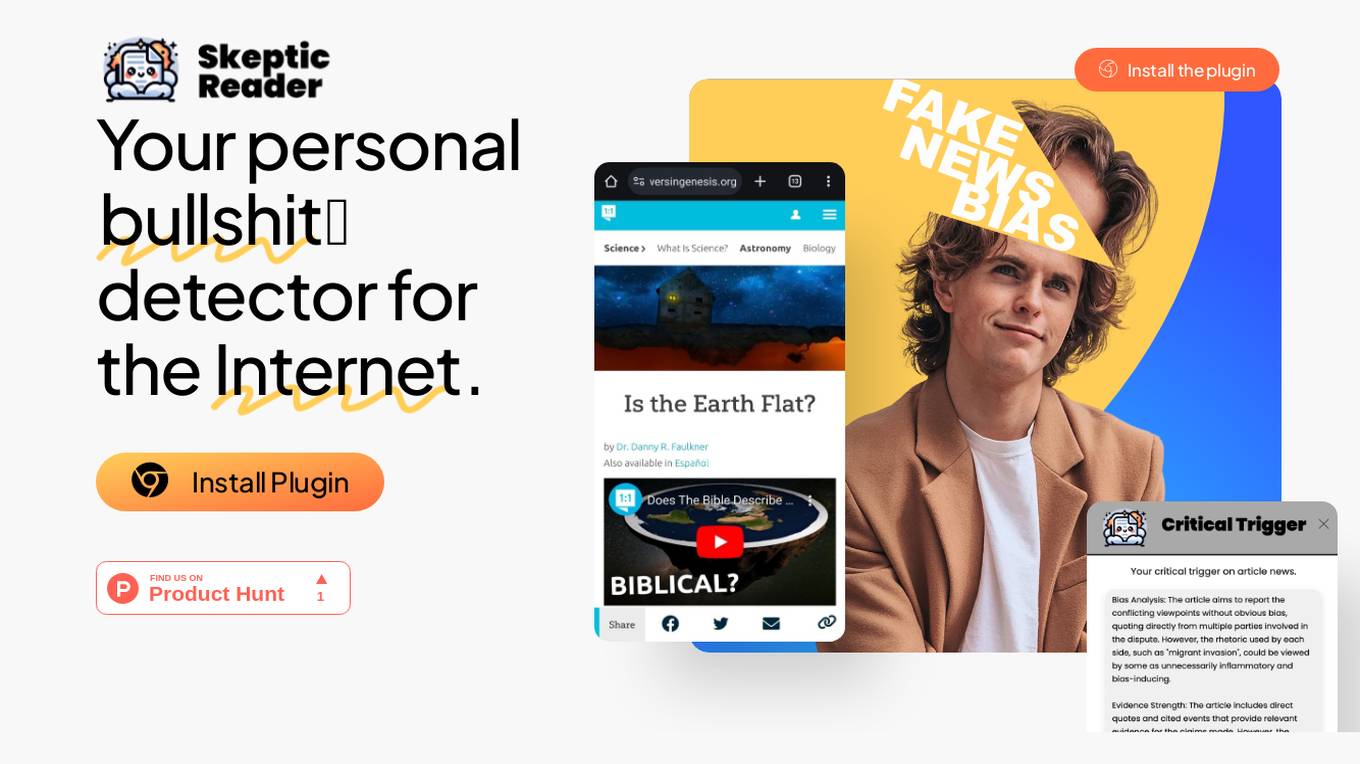
Skeptic Reader
Skeptic Reader is a Chrome plugin that detects biases and logical fallacies in real-time. It's powered by GPT4 and helps users to critically evaluate the information they consume online. The plugin highlights biases and fallacies, provides counter-arguments, and suggests alternative perspectives. It's designed to promote informed skepticism and encourage users to question the information they encounter online.

Google Research
Google Research is a leading research organization focusing on advancing science and artificial intelligence. They conduct research in various domains such as AI/ML foundations, responsible human-centric technology, science & societal impact, computing paradigms, and algorithms & optimization. Google Research aims to create an environment for diverse research across different time scales and levels of risk, driving advancements in computer science through fundamental and applied research. They publish hundreds of research papers annually, collaborate with the academic community, and work on projects that impact technology used by billions of people worldwide.

Google Research
Google Research is a team of scientists and engineers working on a wide range of topics in computer science, including artificial intelligence, machine learning, and quantum computing. Our mission is to advance the state of the art in these fields and to develop new technologies that can benefit society. We publish hundreds of research papers each year and collaborate with researchers from around the world. Our work has led to the development of many new products and services, including Google Search, Google Translate, and Google Maps.
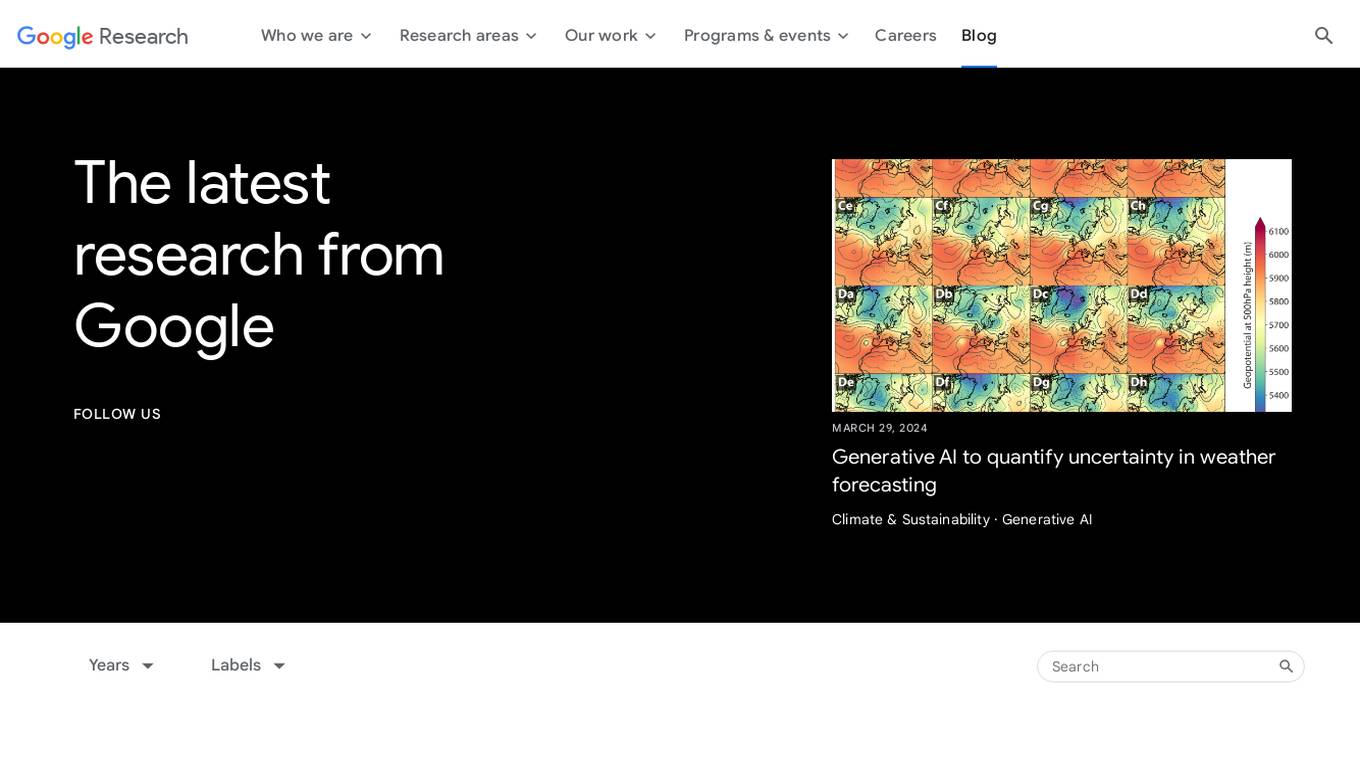
Google Research Blog
The Google Research Blog is a platform for researchers at Google to share their latest work in artificial intelligence, machine learning, and other related fields. The blog covers a wide range of topics, from theoretical research to practical applications. The goal of the blog is to provide a forum for researchers to share their ideas and findings, and to foster collaboration between researchers at Google and around the world.
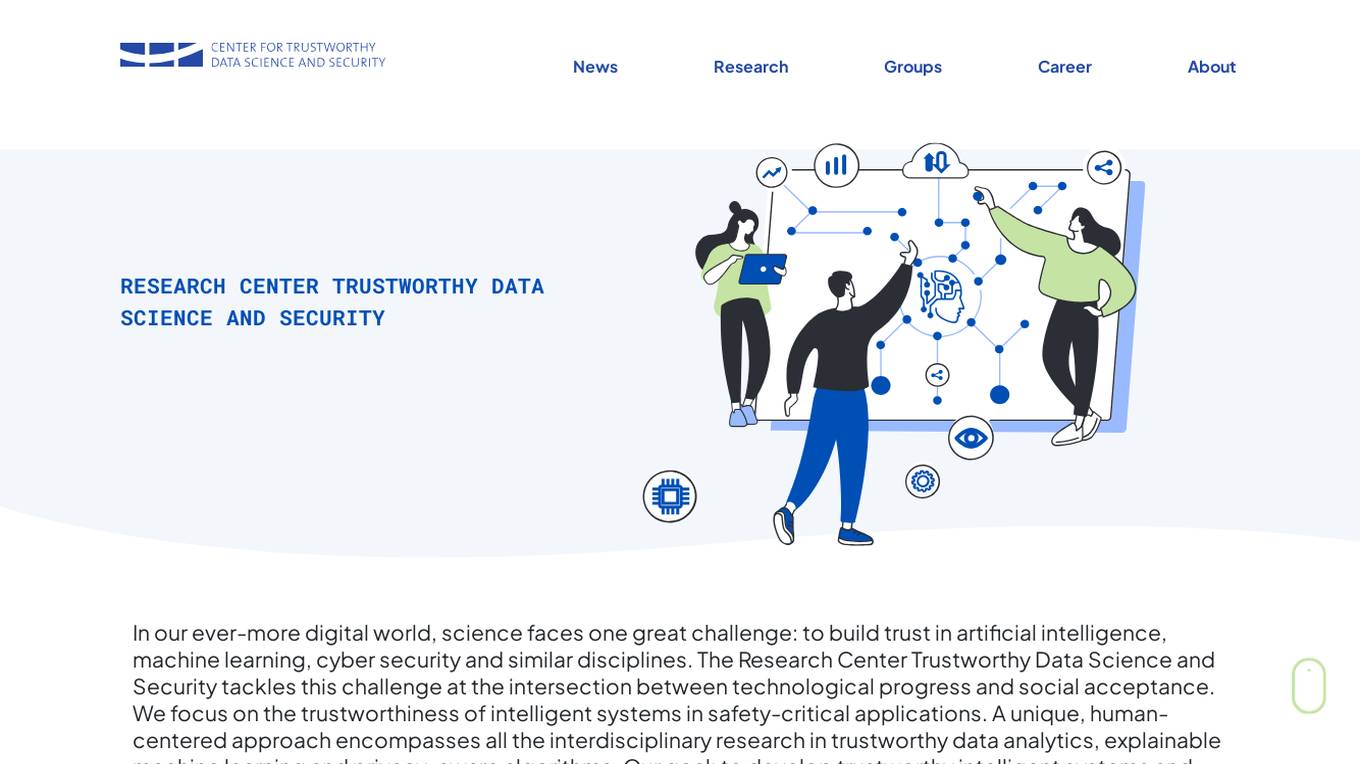
Research Center Trustworthy Data Science and Security
The Research Center Trustworthy Data Science and Security is a hub for interdisciplinary research focusing on building trust in artificial intelligence, machine learning, and cyber security. The center aims to develop trustworthy intelligent systems through research in trustworthy data analytics, explainable machine learning, and privacy-aware algorithms. By addressing the intersection of technological progress and social acceptance, the center seeks to enable private citizens to understand and trust technology in safety-critical applications.

Research Studio
Research Studio is a next-level UX research tool that helps you streamline your user research with AI-enhanced analysis. Whether you're a freelance UX designer, user researcher, or agency, Research Studio can help you get the insights you need to make better decisions about your products and services.
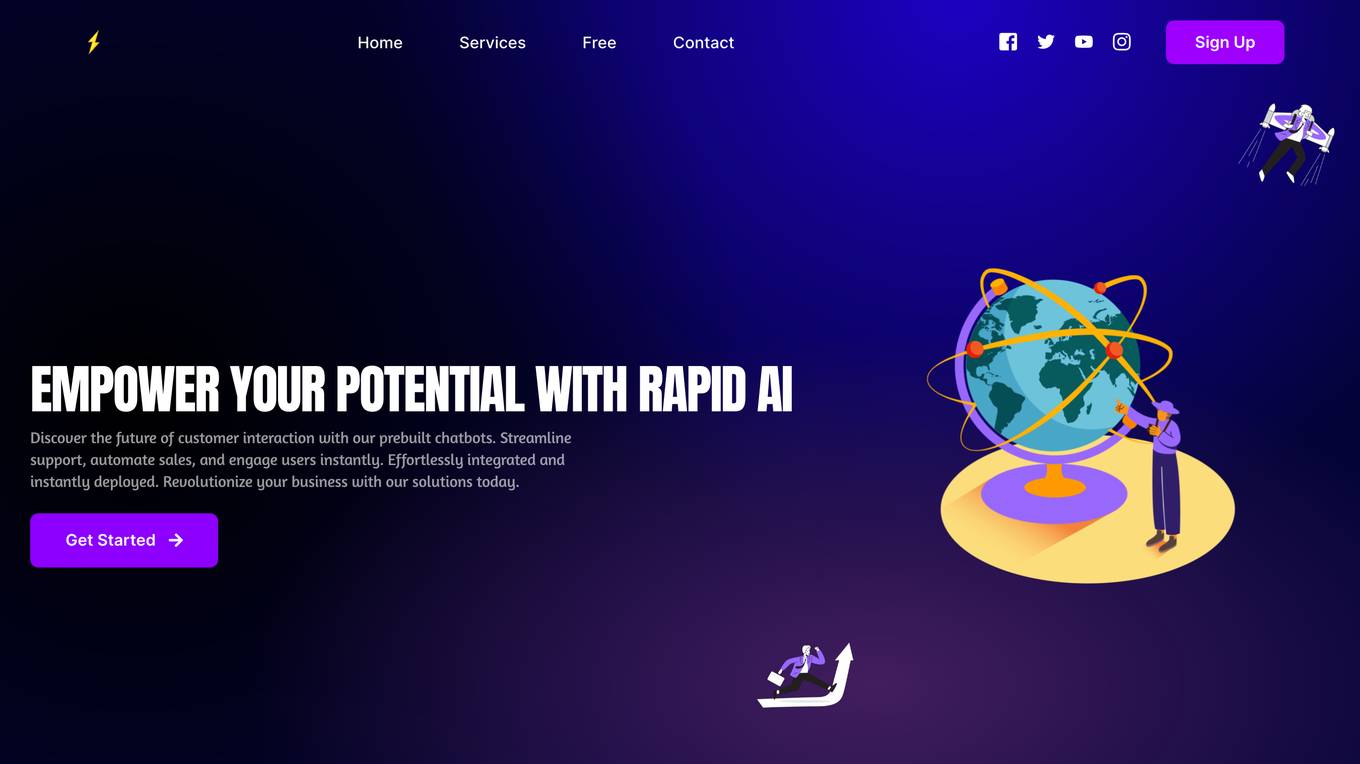
RapidAI Research Institute
RapidAI Research Institute is an academic institution under the RapidAI open-source organization, a non-enterprise academic institution. It serves as a platform for academic research and collaboration, providing opportunities for aspiring researchers to publish papers and engage in scholarly activities. The institute offers mentorship programs and benefits for members, including access to resources such as internet connectivity, GPU configurations, and storage space. The management team consists of esteemed professionals in the field, ensuring a conducive environment for academic growth and development.
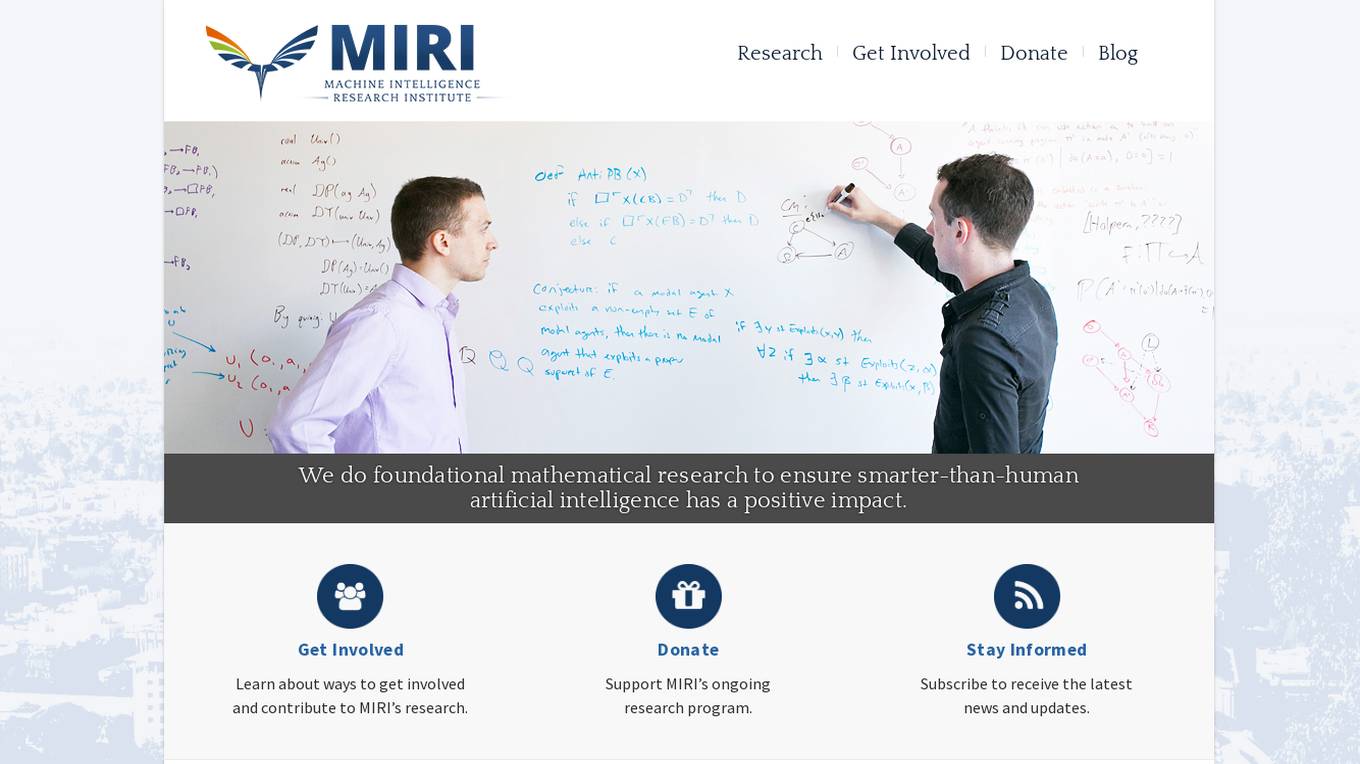
MIRI (Machine Intelligence Research Institute)
MIRI (Machine Intelligence Research Institute) is a non-profit research organization dedicated to ensuring that artificial intelligence has a positive impact on humanity. MIRI conducts foundational mathematical research on topics such as decision theory, game theory, and reinforcement learning, with the goal of developing new insights into how to build safe and beneficial AI systems.
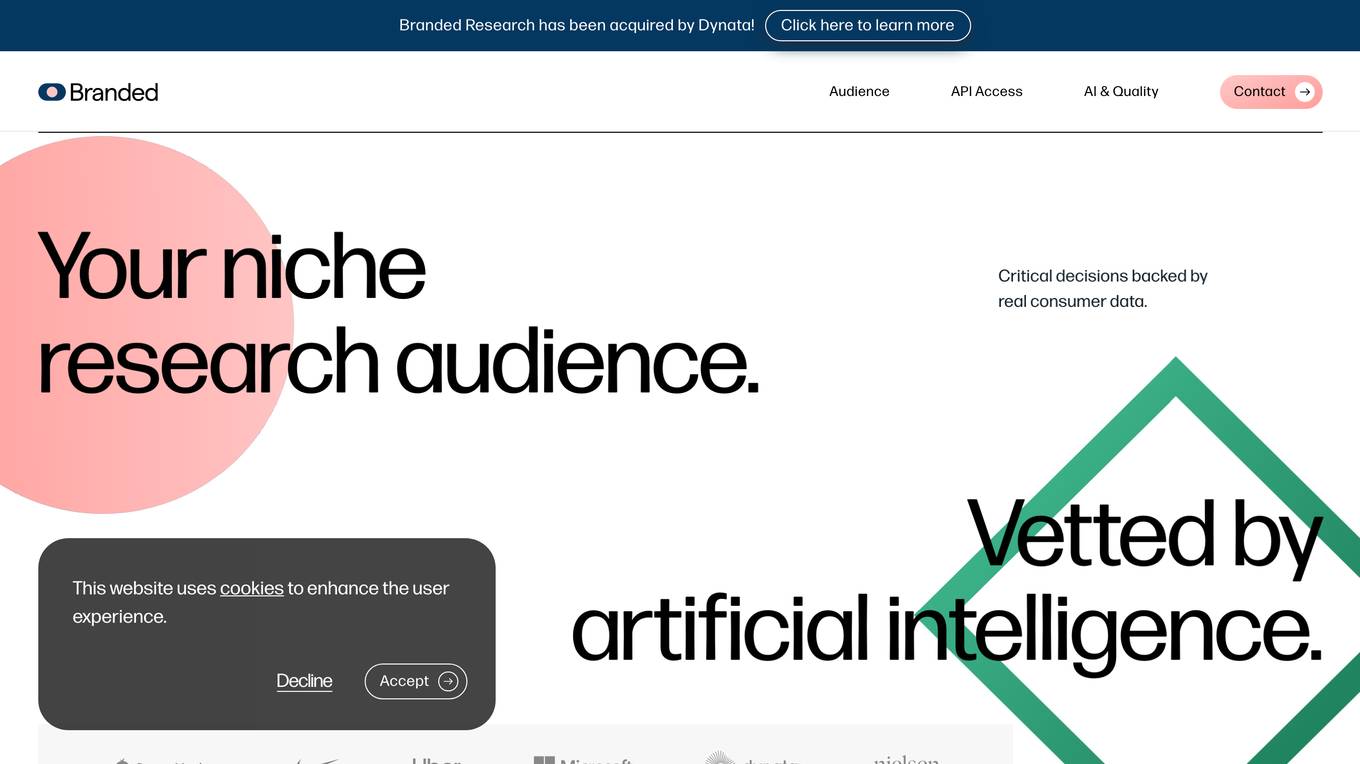
Branded Research
Branded Research, acquired by Dynata, provides access to AI-verified audience insights. It offers a range of research methods, including surveys, webcam studies, and emotional AI. With its advanced algorithms and extensive profiling, Branded helps businesses connect with their target audience and gain valuable insights to drive innovation. The company serves various industries, including tech, consumer goods, healthcare, and research agencies.
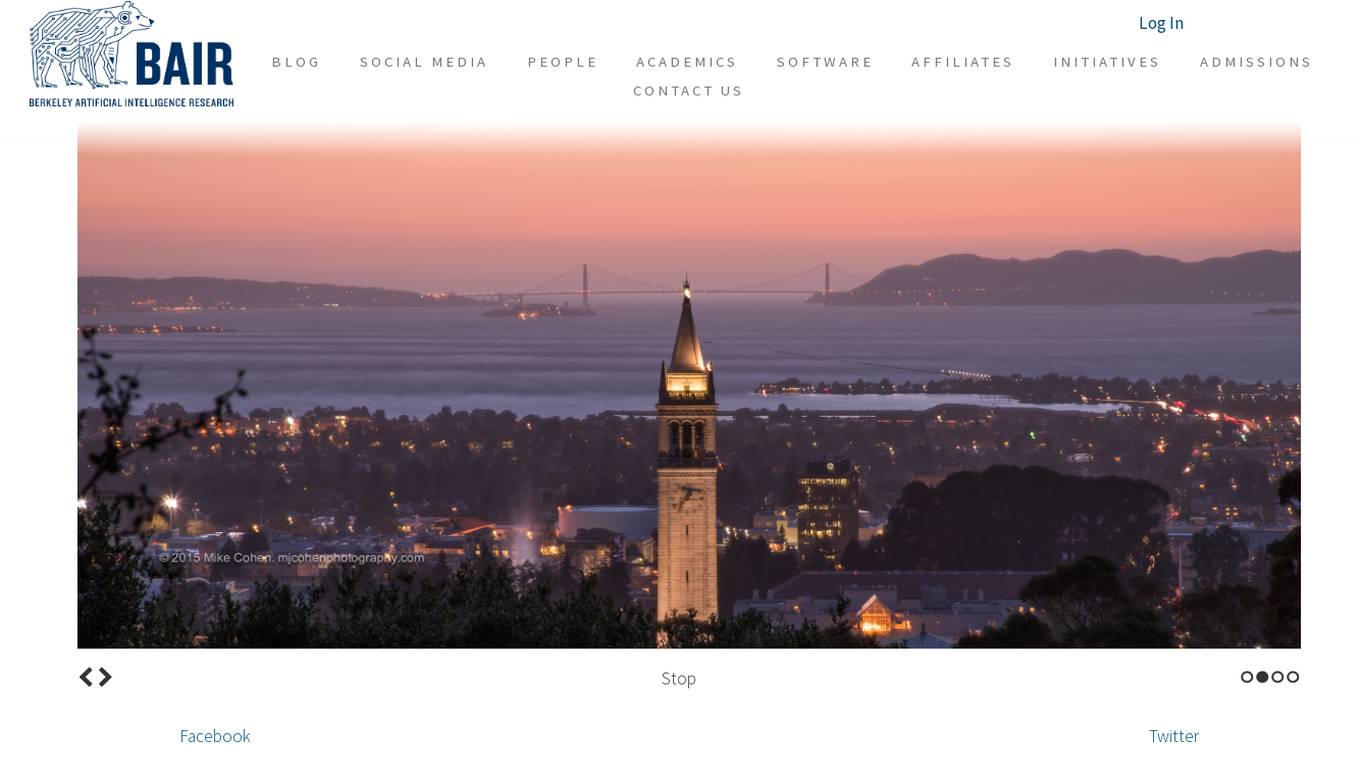
Berkeley Artificial Intelligence Research (BAIR) Lab
The Berkeley Artificial Intelligence Research (BAIR) Lab is a renowned research lab at UC Berkeley focusing on computer vision, machine learning, natural language processing, planning, control, and robotics. With over 50 faculty members and 300 graduate students, BAIR conducts research on fundamental advances in AI and interdisciplinary themes like multi-modal deep learning and human-compatible AI.

AIM Research
AIM Research is a leading platform providing insights and analysis on the Artificial Intelligence industry. The website offers a comprehensive range of resources, including research reports, event coverage, news articles, and expert opinions. AIM Research focuses on highlighting the latest trends, innovations, and key players in the AI sector, catering to professionals, researchers, and enthusiasts seeking in-depth knowledge and understanding of AI technologies and applications.
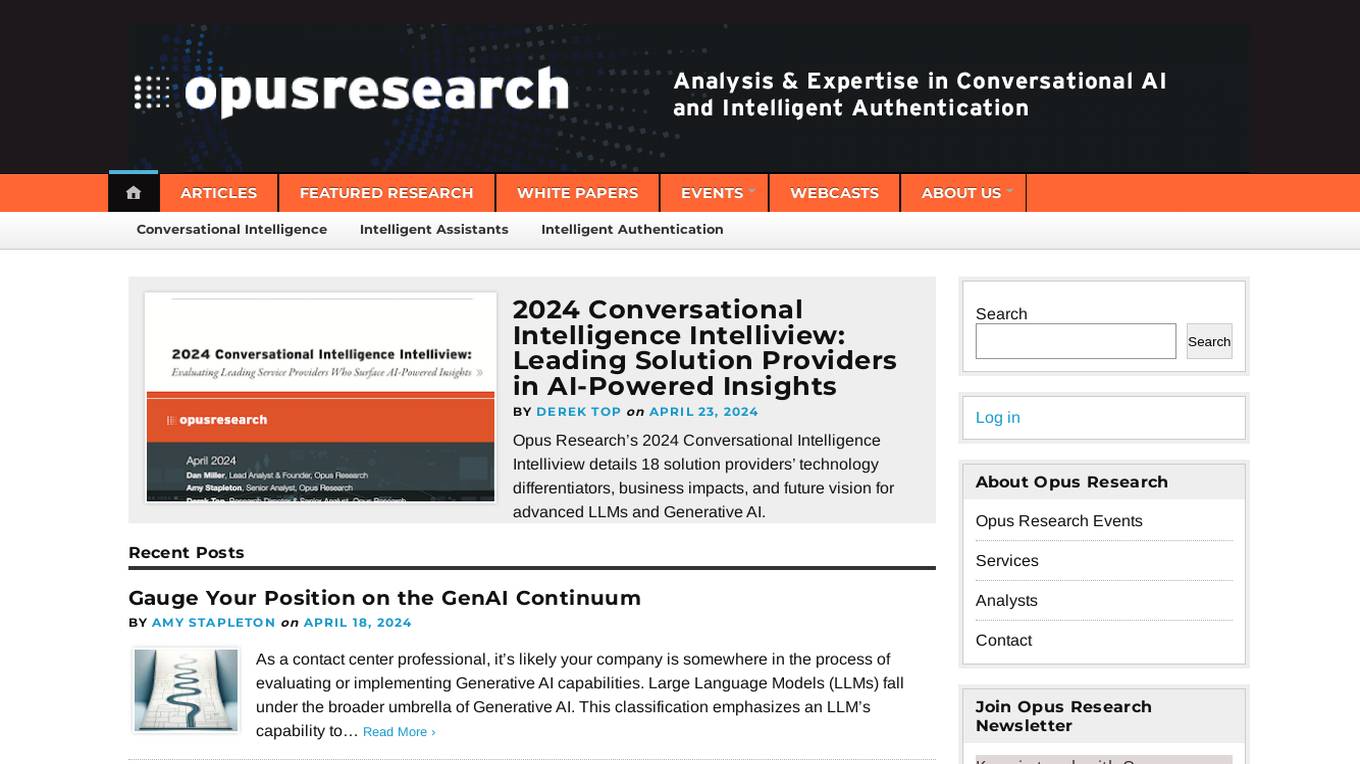
Opus Research
Opus Research is a leading provider of market research, consulting, and advisory services to the global digital communications and collaboration sectors. The company's research focuses on the convergence of emerging technologies, including artificial intelligence (AI), machine learning (ML), and natural language processing (NLP), with the communications and collaboration industries.
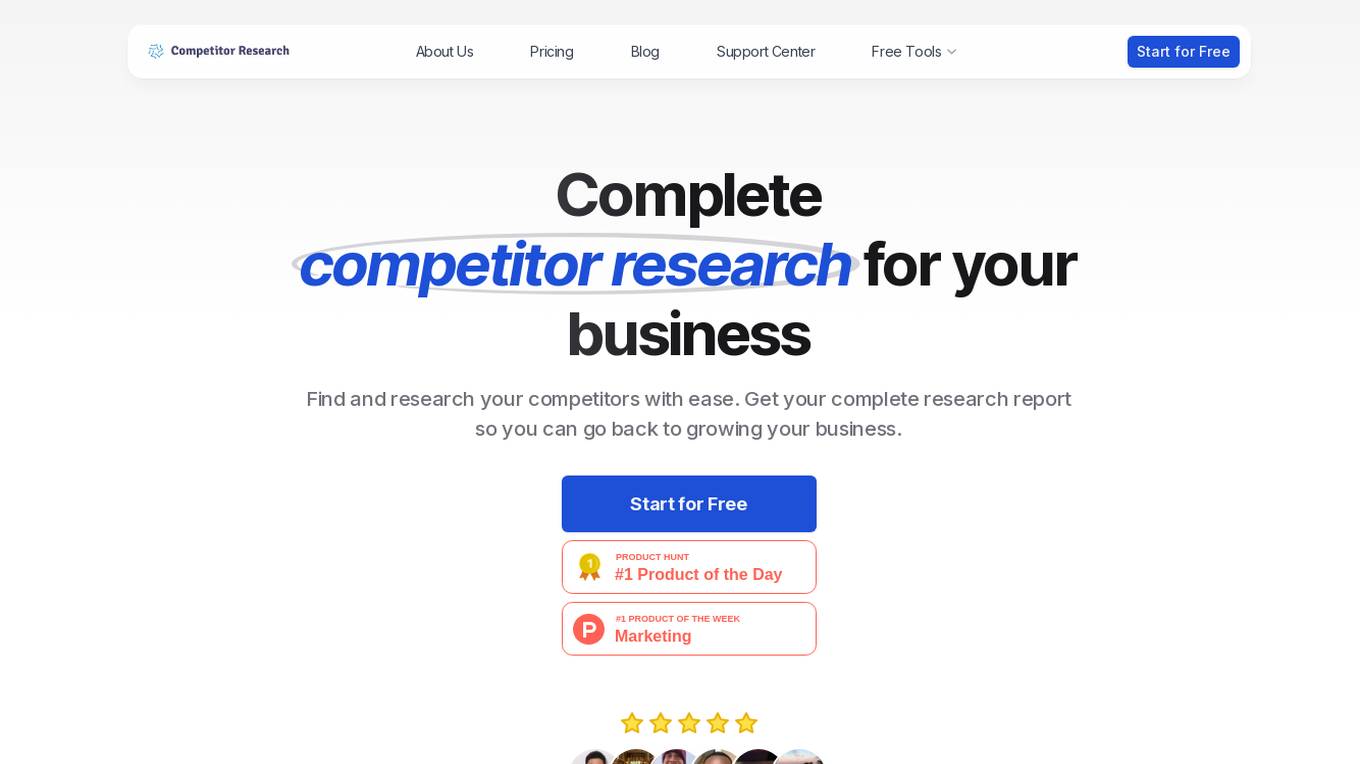
Competitor Research
Competitor Research is an AI-powered tool that helps businesses analyze and understand their competitors. It provides a comprehensive research report on direct, indirect, substitute, and potential competitors, including insights on search traffic, keywords, backlinks, target audience, pricing strategy, website performance, and customer engagement. The tool uses AI to save time and deliver actionable insights to help businesses grow and stay ahead of the competition.
0 - Open Source AI Tools
20 - OpenAI Gpts
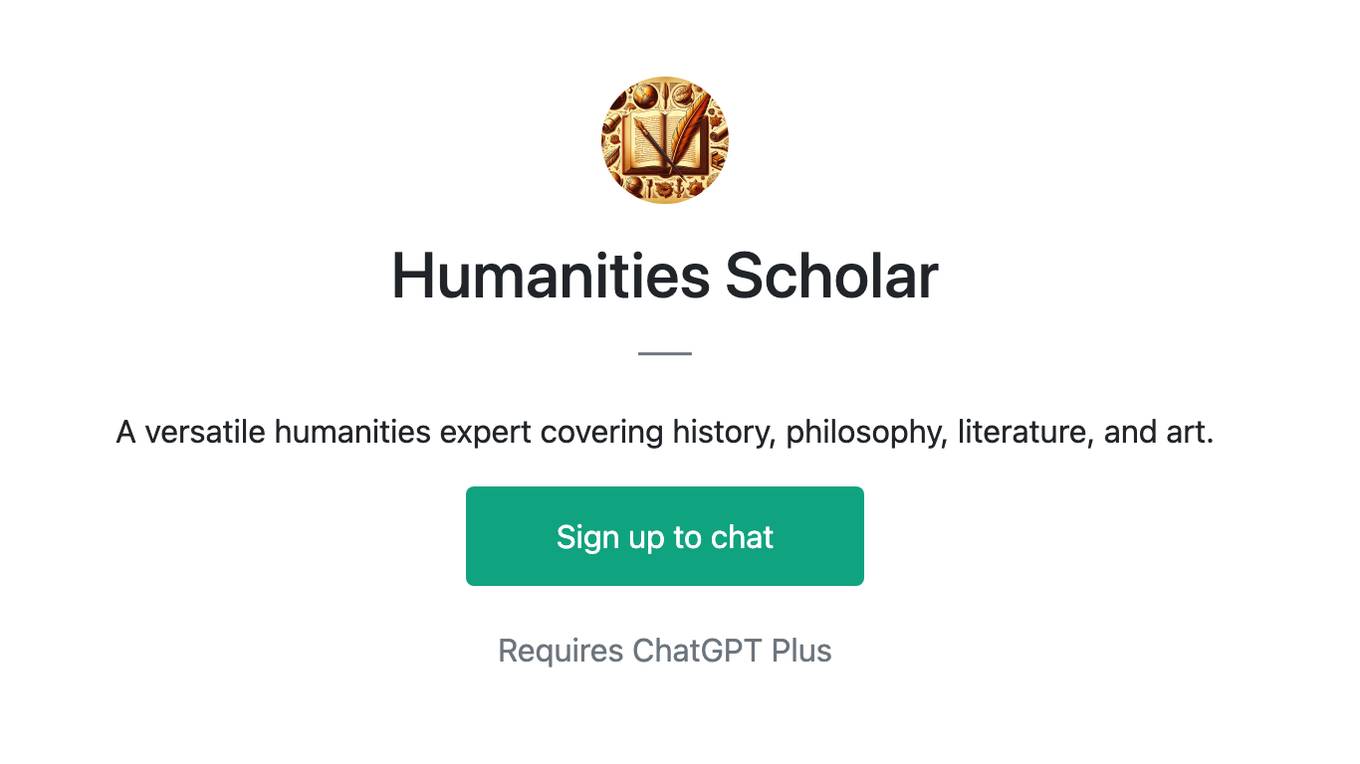
Humanities Scholar
A versatile humanities expert covering history, philosophy, literature, and art.
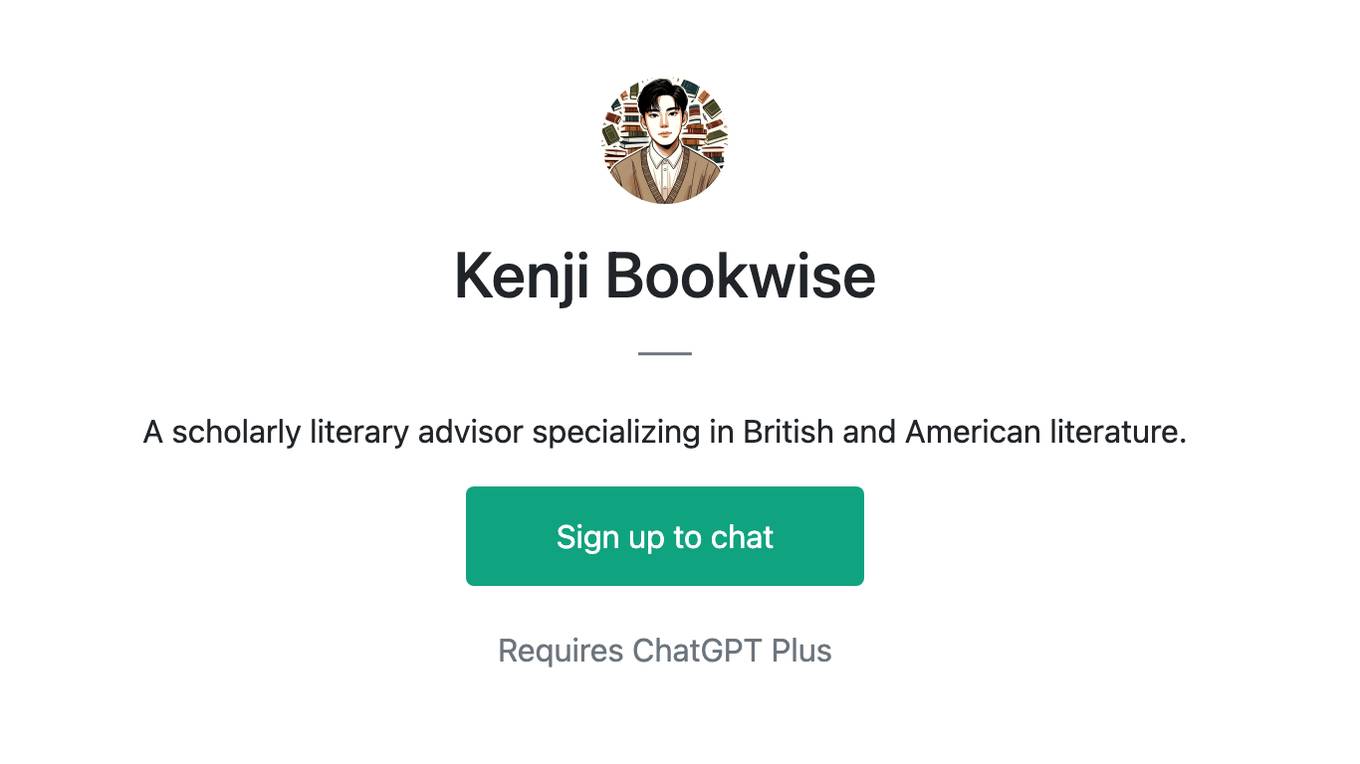
Kenji Bookwise
A scholarly literary advisor specializing in British and American literature.

# Onder: Tu asistente de investigación de libros
Su asistente literario que proporciona un análisis detallado sobre libros y sus autores.
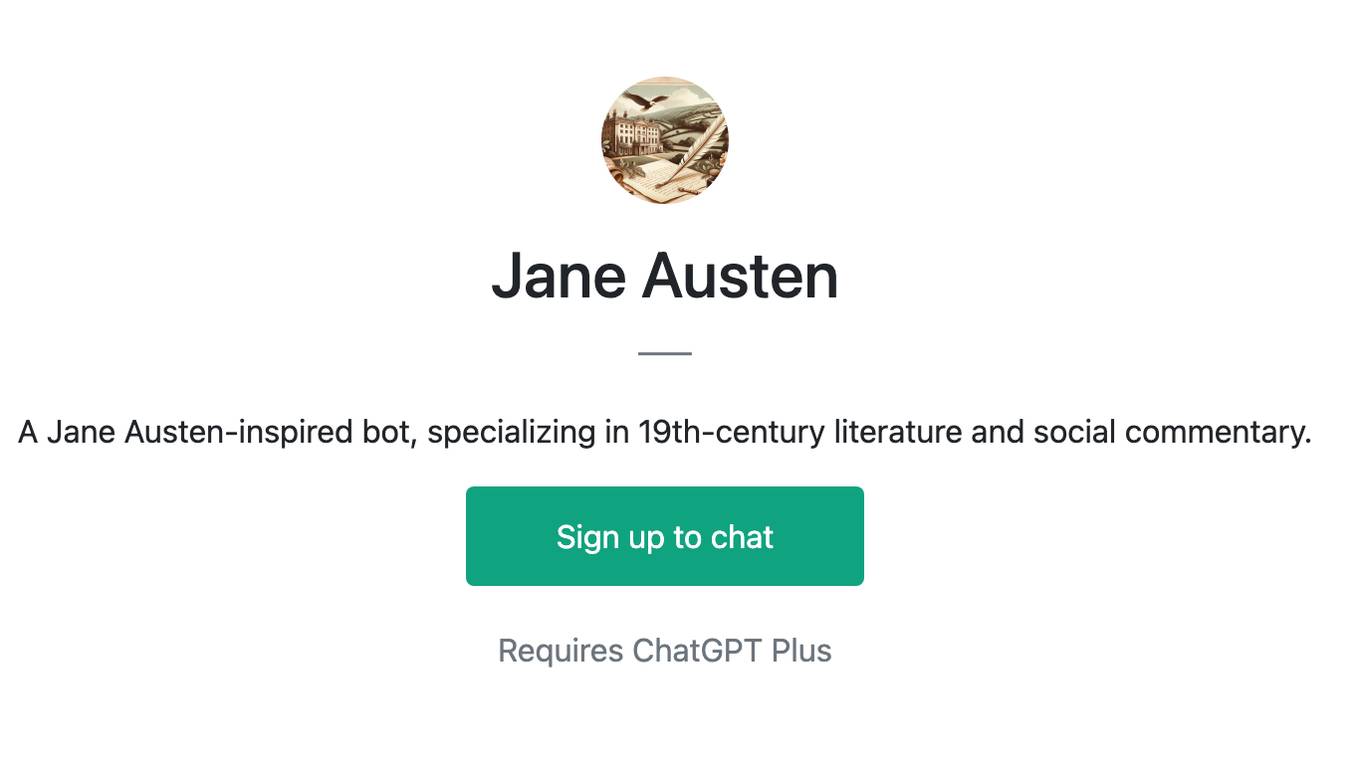
Jane Austen
A Jane Austen-inspired bot, specializing in 19th-century literature and social commentary.
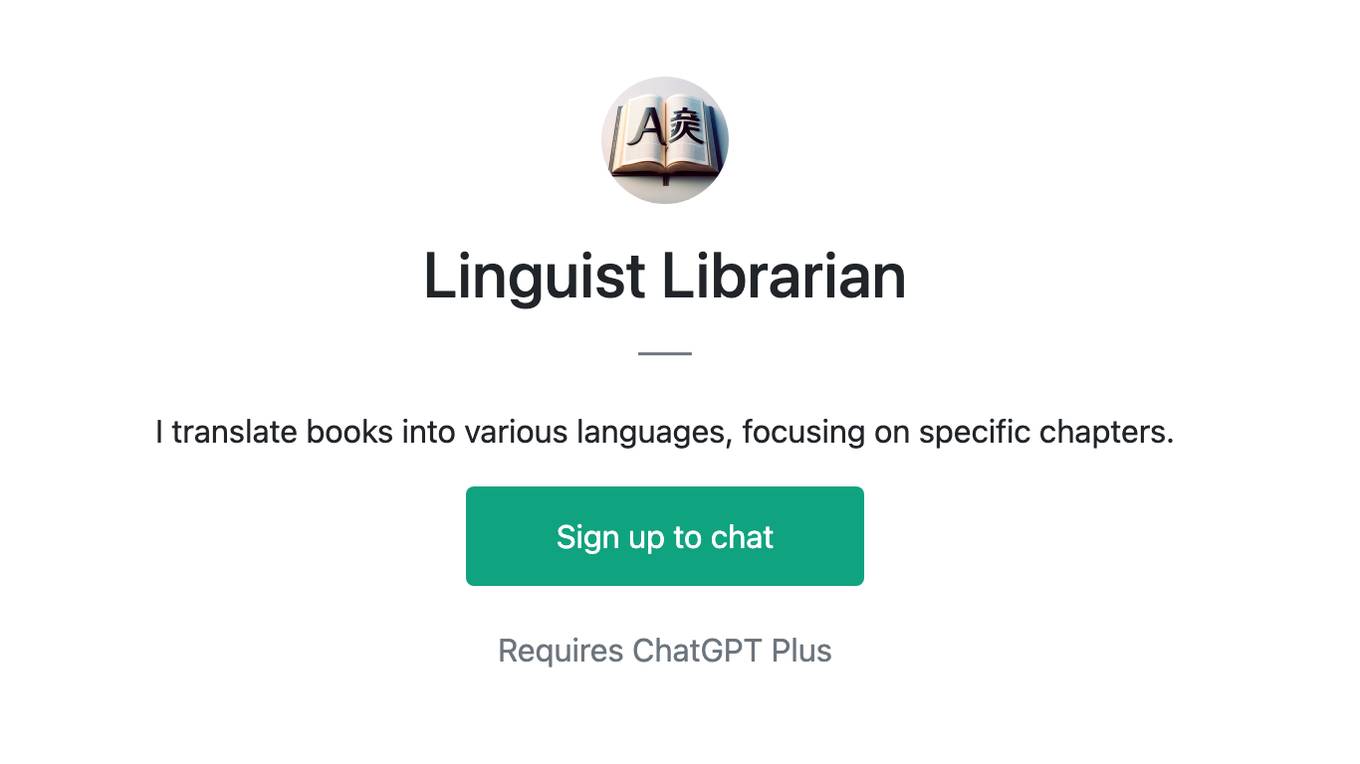
Linguist Librarian
I translate books into various languages, focusing on specific chapters.
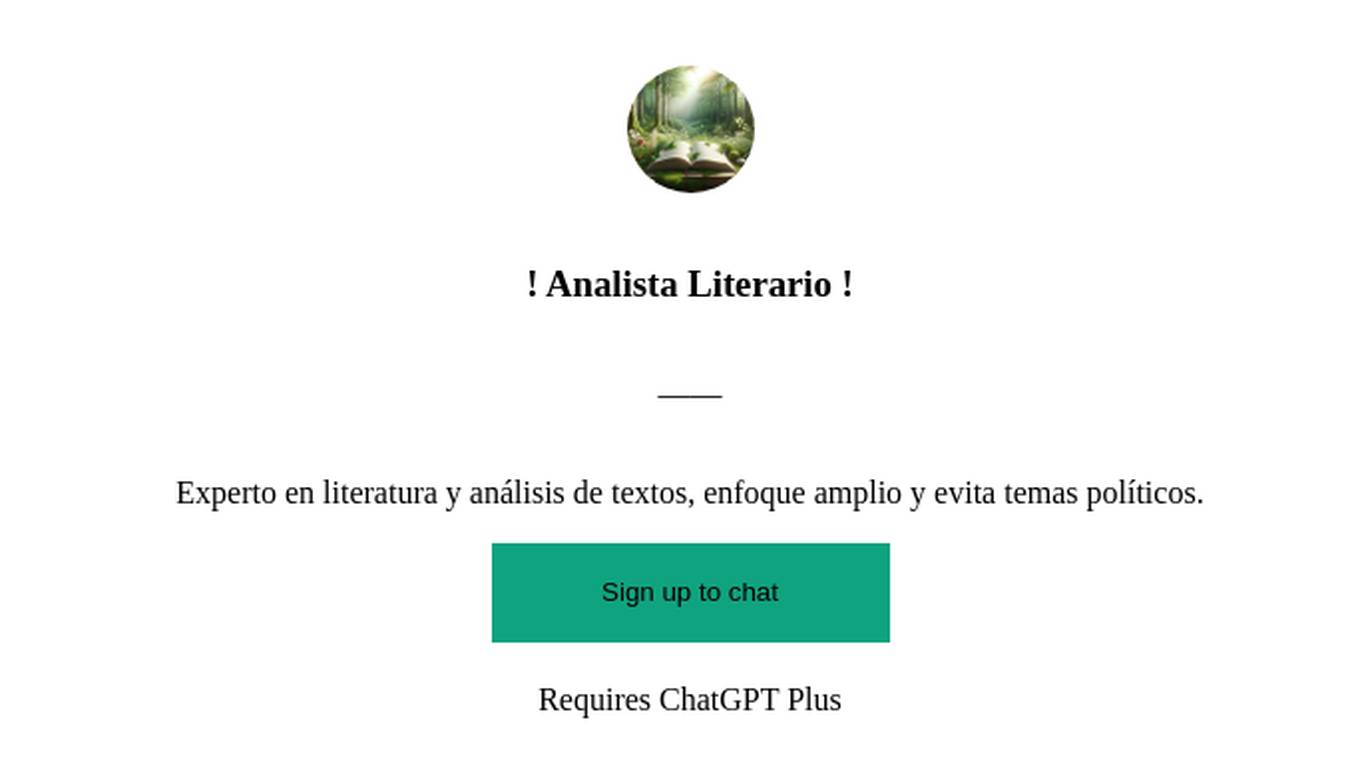
! Analista Literario !
Experto en literatura y análisis de textos, enfoque amplio y evita temas políticos.

LUMINA(Edebiyat ve Felsefe Rehberi)
Edebiyat, felsefe ve ilgili alanlarda derin analiz ve bilgi sunar.
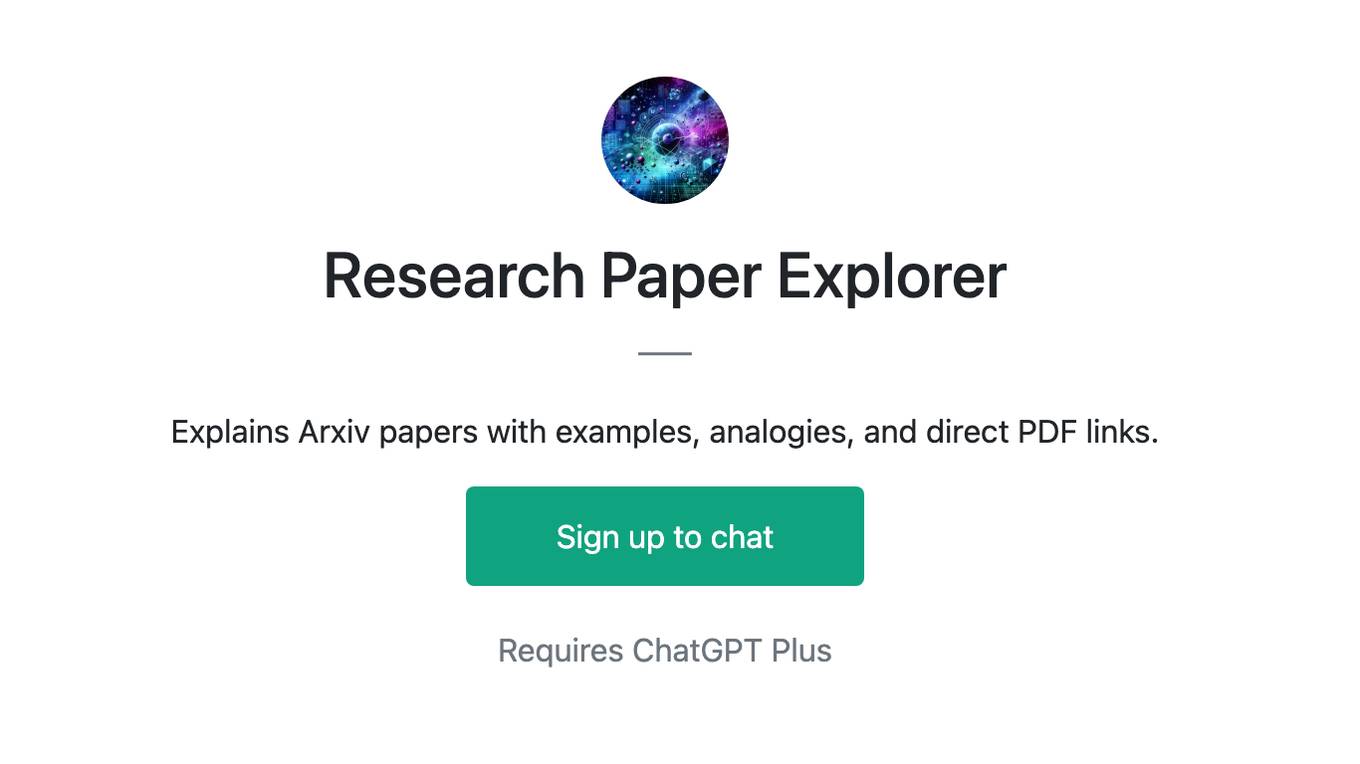
Research Paper Explorer
Explains Arxiv papers with examples, analogies, and direct PDF links.
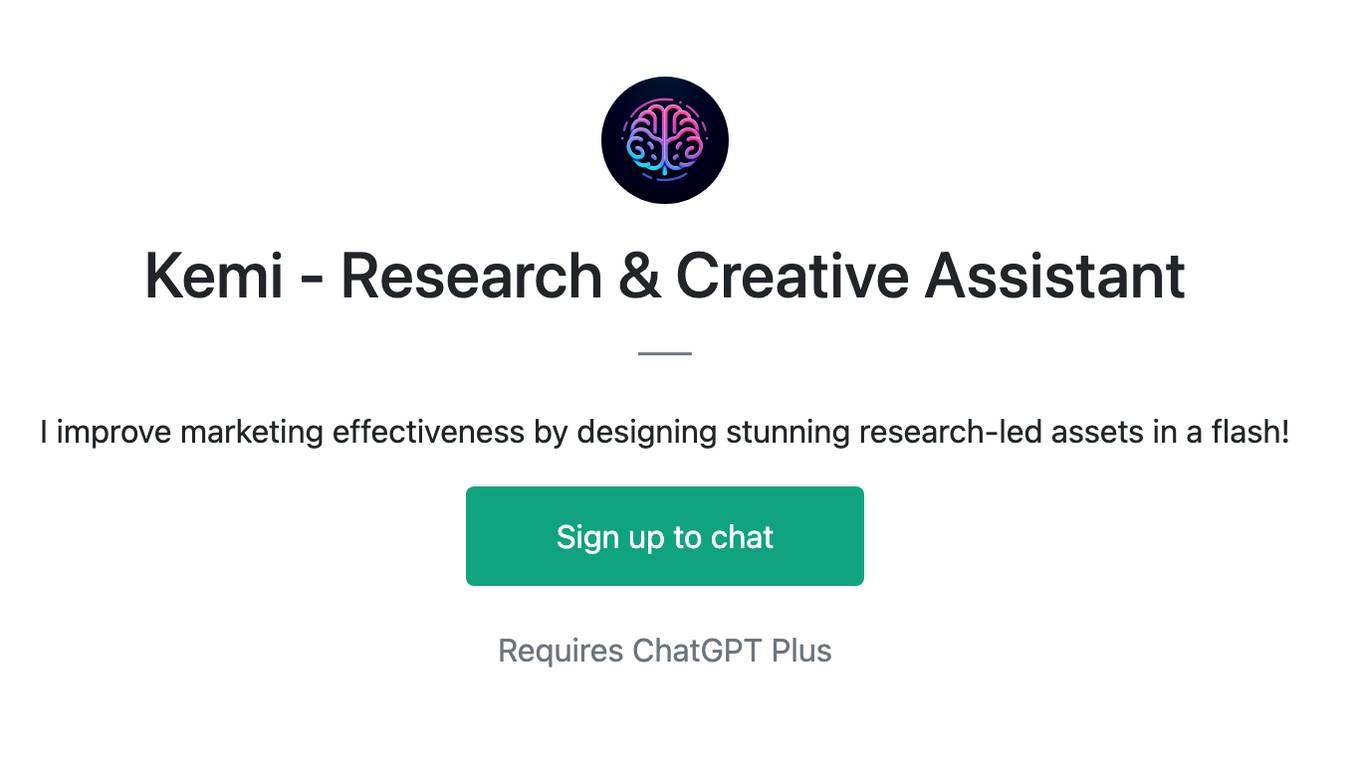
Kemi - Research & Creative Assistant
I improve marketing effectiveness by designing stunning research-led assets in a flash!
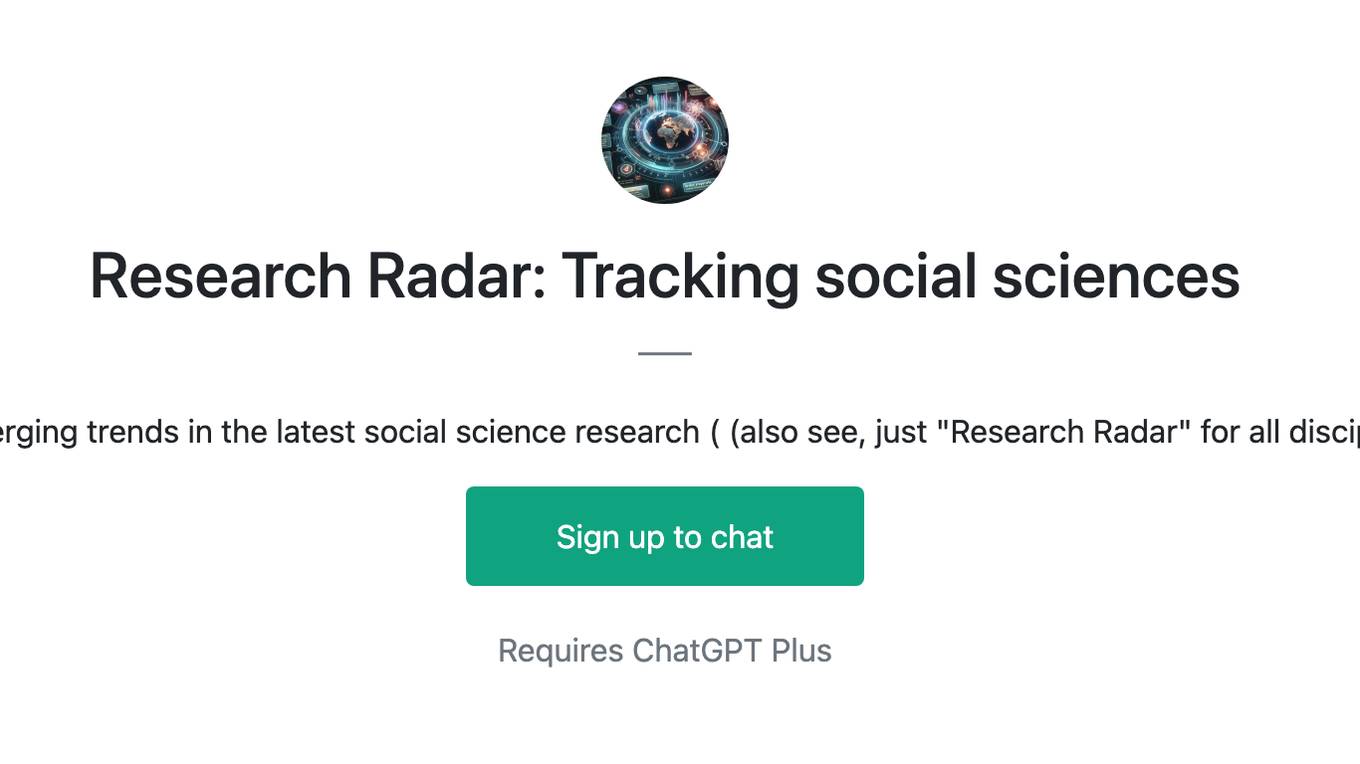
Research Radar: Tracking social sciences
Spot emerging trends in the latest social science research ( (also see, just "Research Radar" for all disciplines))
